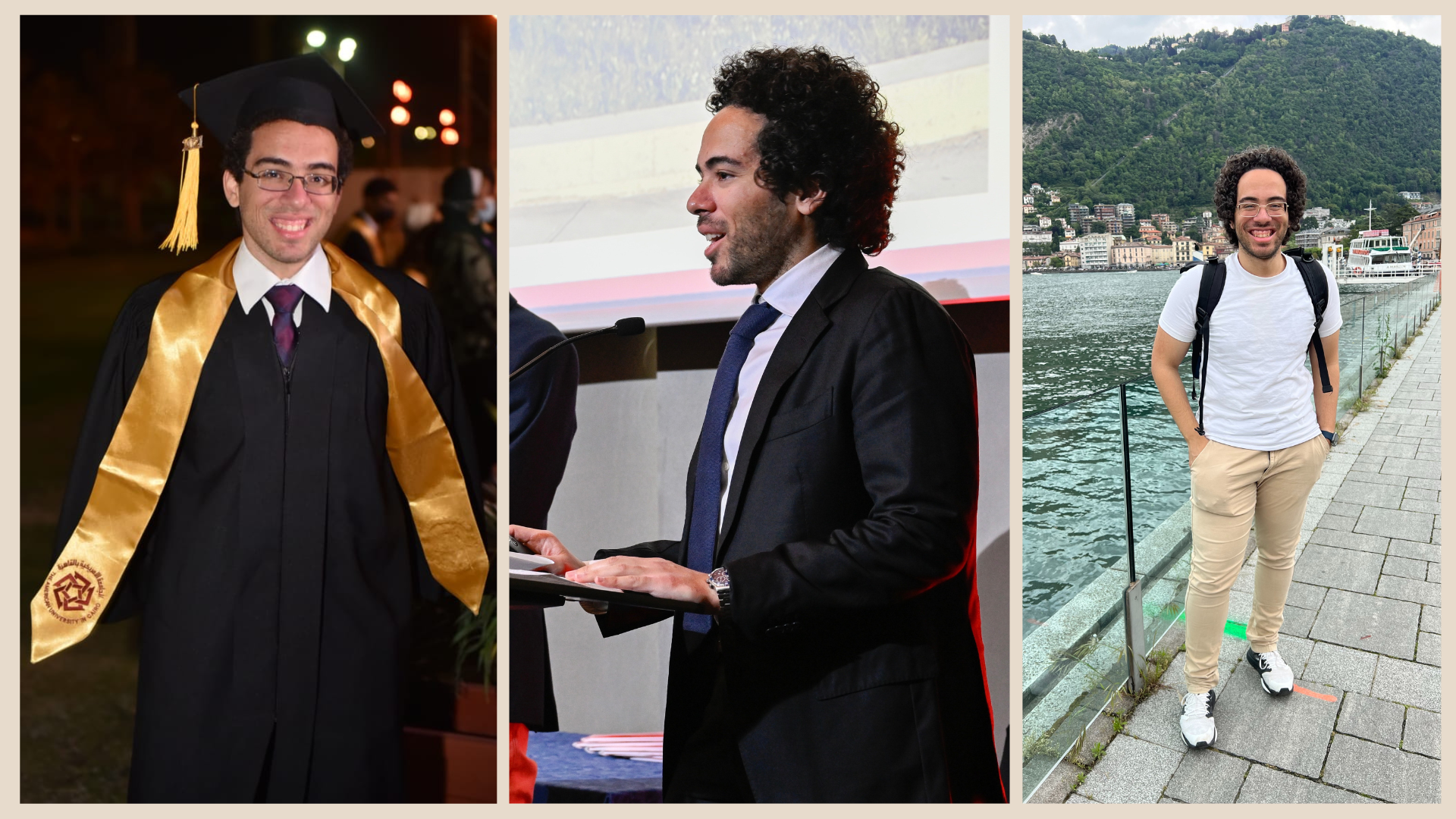Alumni Spotlight: From AUC to Harvard
With a published research paper and a first-place finish at a major research competition under his belt, Mohamed Samy Abdallah ’21 made waves as an undergraduate. Now pursuing a PhD in applied physics at Harvard University, Abdallah is developing machine learning models to accelerate and improve computational techniques for material discovery and engineering.
What drives Abdallah’s passion for research, and how did his early achievements take him from AUC to Harvard?
“I started my research career at AUC,” said Abdallah, who double majored in physics and mechanical engineering, and minored in mathematics.
The research opportunities offered by AUC struck Abdallah as exceptional, from research assistantship to work-study programs. “I feel privileged to have had a lot of research experience at AUC,” he said. “It’s usually hard to do high-quality research at the undergraduate level, but AUC had this institutionalized system of allowing students to do so.”
The formative benefits that Abdallah enjoyed during his time at AUC don’t stop there. “In my junior year, I traveled to the University of California, Berkeley as part of AUC’s summer abroad program. Because AUC’s Undergraduate Research Program funded our research trips, I was also able to participate in an international robotics competition in California one year later,” said Abdallah. “Both experiences empowered me and inspired me to study and travel abroad.”
“It’s usually hard to do high-quality research at the undergraduate level, but AUC had this institutionalized system of allowing students to do so.”
At graduation, Abdallah was awarded the President’s Cup and the Mohamed El Beleidy Academic Award. “The fact that I did a double major in physics and mechanical engineering at AUC led me to where I am now.”
At Harvard, Abdallah is still working in the fields of physics and engineering — a close mirror of his undergraduate studies. “That’s part of the reason why I’m an applied physics student now; AUC shaped my career.”
After graduating from AUC, Abdallah joined École Polytechnique Fédérale de Lausanne in Switzerland to pursue a Master of Science in physics. There, he excelled in his studies, winning the Gilbert Hausmann award for the best master’s thesis in the fields of physics, mechanical engineering, and electrical engineering. He also gave the physics section graduation speech.
Abdallah is grateful for the opportunity and guidance provided to him by his AUC faculty mentors. “I worked under two different supervisors as a research assistant, including [Associate Professor] Mostafa Youssef. He’s the one who made me love this field,” he said.
“That’s part of the reason why I’m an applied physics student now; AUC shaped my career.”
A young student at the time, Abdallah didn’t know much about the research process. Youssef introduced him to that world, taking him through the research and even publishing a paper together. “Professor Mostafa Youssef was one of my greatest influences,” Abdallah said.
While at AUC, Abdallah also worked with Associate Professor Ahmed Hamed, who studies high energy physics as a collaborator of the STAR experiment at Brookhaven National Laboratory. “High-energy physics is still a very interesting field for me, and it was an important part of my research career to be a part of such a huge experimental undertaking,” he said.
“At some point I would love to come back to Egypt,” said Abdallah. “Living abroad and studying abroad is a great privilege, but so is being a researcher in my home country.”









